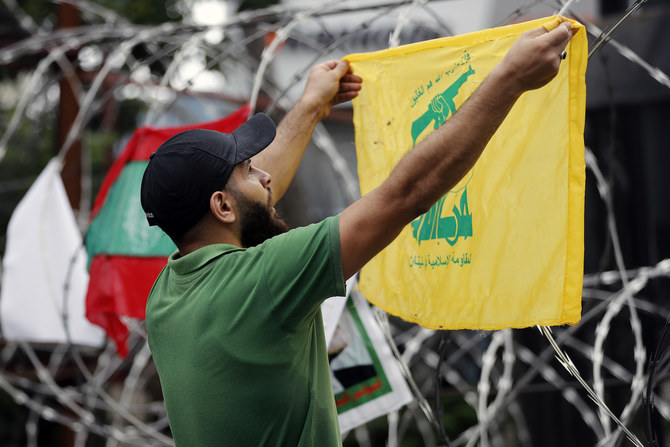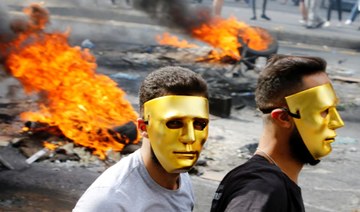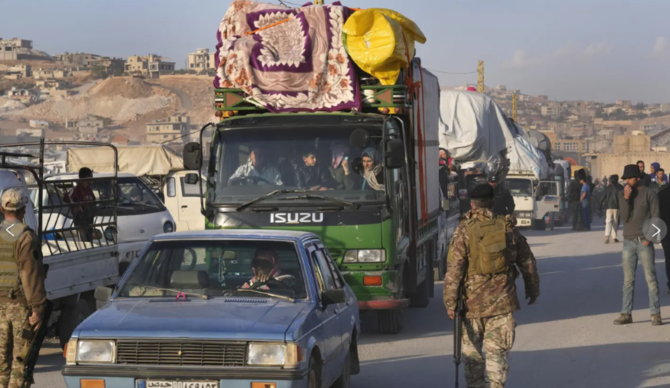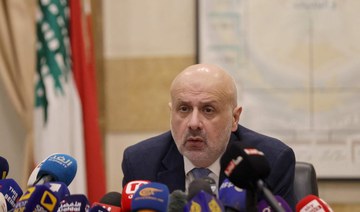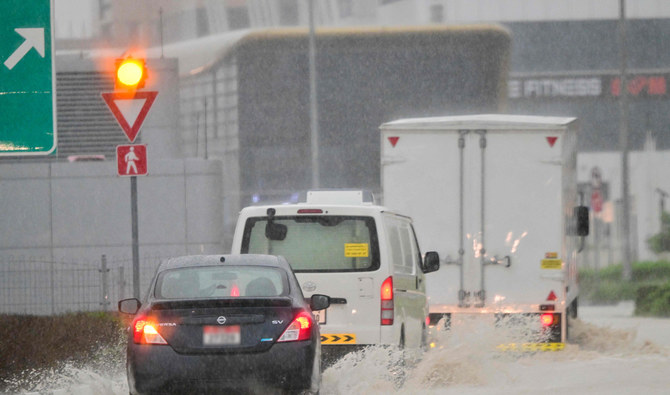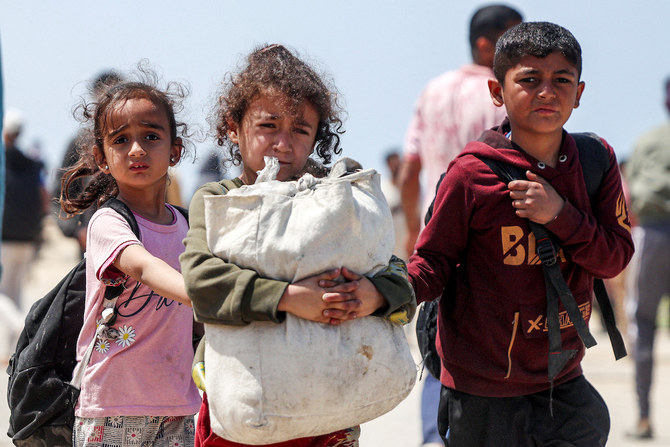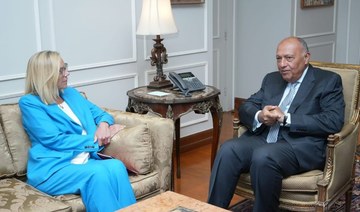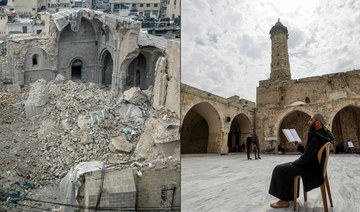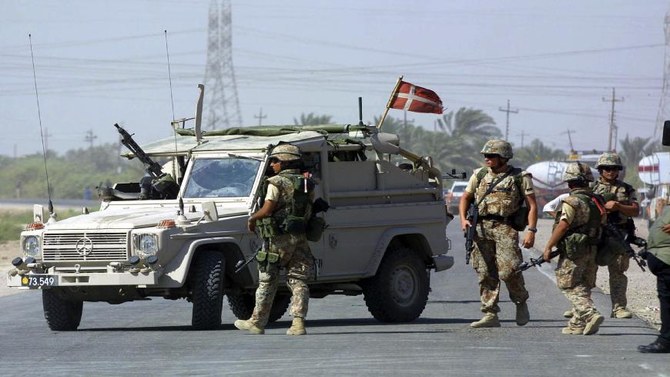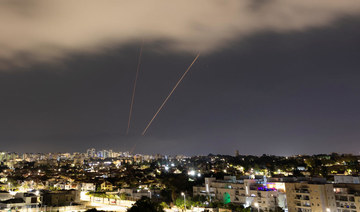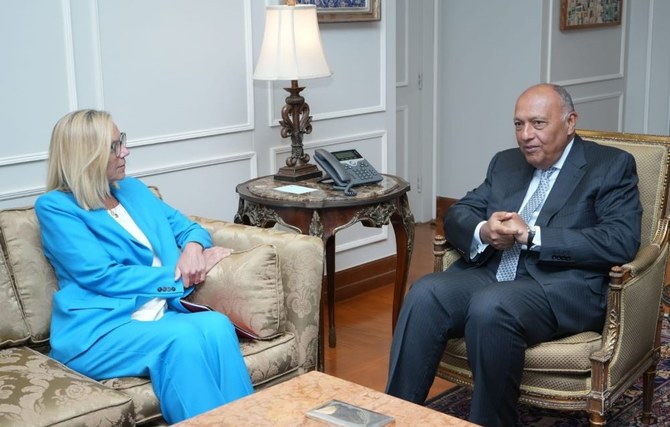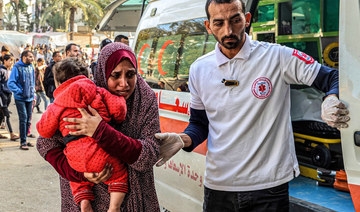BEIRUT: The fallout from US Secretary of State Mike Pompeo’s warning that Washington will do all it can to prevent Iran selling oil to Hezbollah in Lebanon continued this week.
Youth organizations that support Hezballah staged a demonstration on Friday afternoon in the vicinity of the US Embassy in the area of Awkar in Mount Lebanon, surrounded by tight security barriers.
Although the protesters succeeded in breaching the first barrier, security forces retaliated with water cannons and smoke bombs to disperse them.
After Hezbollah leader Hassan Nasrallah said his party was in talks with Iran about buying oil with Lebanese pounds, to ease pressure on the plummeting currency, Pompeo said on Wednesday: “Washington will not allow this. This will not be acceptable. This is a product subject to sanctions. We will do everything in our power to ensure that Iran cannot continue to sell crude oil anywhere, including to Hezbollah.”
A Hezbollah source described the comments as “blatant, rude and unacceptable interference in Lebanese economic options.”
Another Hezbollah source said on Thursday: “Lebanon will not remain a hostage to American practices. It has to make up its mind about the choices that provide for the needs of its people.”
However, Minister of Energy Raymond Ghajar said ahead of a cabinet session on Thursday that the Lebanese government “is not considering importing oil from Iran, is not negotiating with it on this issue, and negotiations are still ongoing with Iraq.”
Lebanon is facing an unprecedented financial crisis that has caused its currency to lose 80 percent of its value, resulting in soaring inflation and plunging many people into poverty.
Nasrallah on Thursday renewed his call for the Lebanese government to purchase oil from Iran, adding that Tehran “is ready to accept payment in Lebanese pounds instead of the dollar.” He also accused the US of “imposing an economic, financial and monetary blockade on Lebanon and its people.”
Pompeo said that “the US will continue to treat Hezbollah as a terrorist organization,” while pledging his country’s support for Lebanon and its assistance to help the Lebanese people get through the crisis. He added that Washington will not accept Lebanon becoming a state affiliated with Iran, and will continue to put pressure on Hezbollah and support the efforts of the Lebanese people to ensure they are represented by an honest government.
Meanwhile Sheikh Nazir Jishi, a cleric who leads a group called Righteous People, has filed a complaint with the public prosecutor’s office accusing US Ambassador to Lebanon Dorothy Shea based on evidence allegedly “related to establishing espionage networks that work for the benefit of the Israeli enemy on Lebanese lands, incitement, inciting sectarian strife, threatening civil peace and insulting the Lebanese people.”
Mohanad Hage Ali, a fellow at the Carnegie Middle East Center, said that the events of recent days show that Washington is continuing to put pressure on Hezbollah, without allowing relations to completely break down.
He highlighted a number of recent developments, including: Nasrallah’s comments that his party wants Lebanon to have good relations with all countries, including the US; the legal action taken against Ambassador Shea; the early release of Lebanese businessman Kassim Tajideen from an American prison where he was serving a five-year sentence for providing millions of dollars in funding for Hezbollah; and an official visit to Lebanon by Gen. Kenneth McKenzie, commander of US Central Command, during which he met President Michel Aoun and the commander of the Lebanese Armed Forces.
“All of these situations indicate that some kind of an agreement is being woven between the two sides, beneath all the confrontations,” said Hage Ali.
“The Americans care about supporting Lebanese institutions, especially the army. There is talk of limited Arab aid to Lebanon with American approval but what does this mean? Is it like life support so that the country continues to survive within minimum limits until the next US presidential election, pending a new approach to the Iranian threat … if the Democrats win?”



